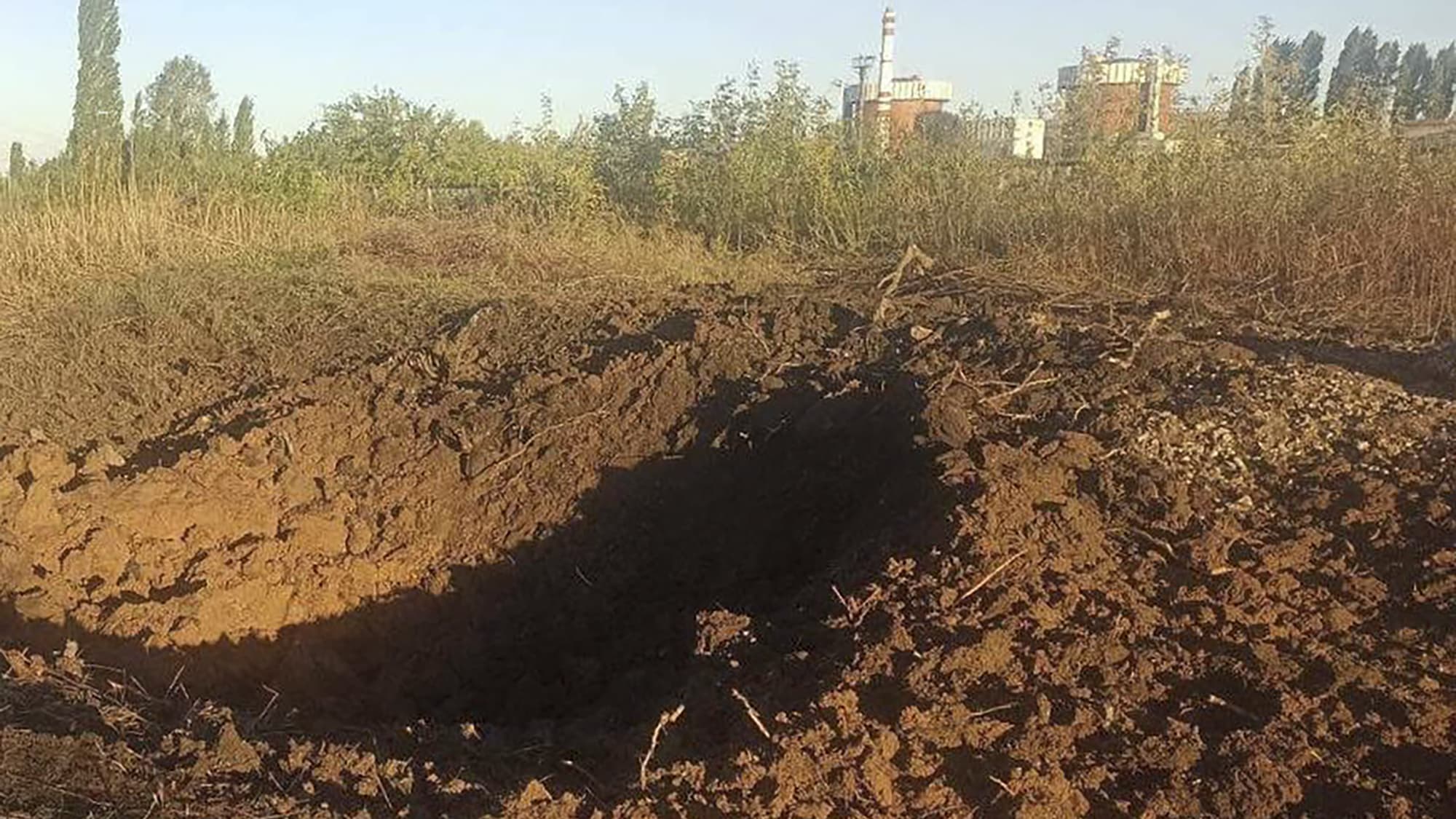Ukraine's defense ministry calls Russian missile strike 'nuclear terrorism'


A free daily email with the biggest news stories of the day – and the best features from TheWeek.com
You are now subscribed
Your newsletter sign-up was successful
A Russian missile struck within 328 yards of three reactors at the South Ukraine Nuclear Power Plant on Monday, Ukrainian officials said. This is the country's second-largest nuclear power station, and Ukraine's Defense Ministry called the attack an act of "nuclear terrorism."
Energoatom, Ukraine's nuclear operator, said the missile left a hole nearly seven feet deep and 13 feet wide. While industrial equipment was damaged, no power plant employees were injured and the reactors are functioning normally. The Russian Defense Ministry has not commented on the missile strike.
Last week, Russian President Vladimir Putin said his forces have been holding back on hitting infrastructure in Ukraine, but recently "delivered a couple of impactful strikes. Let's consider those as warning strikes." His remarks came after a Ukrainian counteroffensive picked up steam, and some areas of Ukraine were taken back from Russia.
The Week
Escape your echo chamber. Get the facts behind the news, plus analysis from multiple perspectives.

Sign up for The Week's Free Newsletters
From our morning news briefing to a weekly Good News Newsletter, get the best of The Week delivered directly to your inbox.
From our morning news briefing to a weekly Good News Newsletter, get the best of The Week delivered directly to your inbox.
Not long after Russia invaded Ukraine in late February, Russian troops entered the Zaporizhzhia nuclear plant, which is the largest such facility in Europe. There has been intense shelling in the area, and Patricia Lewis, an international security research director at the Chatham House think tank, told The Associated Press that Russian forces are likely trying to get Ukraine's nuclear plants offline before winter.
"It's a very, very dangerous and illegal act to be targeting a nuclear station," she said. "Only the generals will know the intent, but there's clearly a pattern. What they seem to be doing each time is to try to cut off the power to the reactor. It's a very clumsy way to do it, because how accurate are these missiles?"
A free daily email with the biggest news stories of the day – and the best features from TheWeek.com
Catherine Garcia has worked as a senior writer at The Week since 2014. Her writing and reporting have appeared in Entertainment Weekly, The New York Times, Wirecutter, NBC News and "The Book of Jezebel," among others. She's a graduate of the University of Redlands and the Columbia University Graduate School of Journalism.
-
 How the FCC’s ‘equal time’ rule works
How the FCC’s ‘equal time’ rule worksIn the Spotlight The law is at the heart of the Colbert-CBS conflict
-
 What is the endgame in the DHS shutdown?
What is the endgame in the DHS shutdown?Today’s Big Question Democrats want to rein in ICE’s immigration crackdown
-
 ‘Poor time management isn’t just an inconvenience’
‘Poor time management isn’t just an inconvenience’Instant Opinion Opinion, comment and editorials of the day
-
 What is ‘Arctic Sentry’ and will it deter Russia and China?
What is ‘Arctic Sentry’ and will it deter Russia and China?Today’s Big Question Nato considers joint operation and intelligence sharing in Arctic region, in face of Trump’s threats to seize Greenland for ‘protection’
-
 What would a UK deployment to Ukraine look like?
What would a UK deployment to Ukraine look like?Today's Big Question Security agreement commits British and French forces in event of ceasefire
-
 Would Europe defend Greenland from US aggression?
Would Europe defend Greenland from US aggression?Today’s Big Question ‘Mildness’ of EU pushback against Trump provocation ‘illustrates the bind Europe finds itself in’
-
 Did Trump just end the US-Europe alliance?
Did Trump just end the US-Europe alliance?Today's Big Question New US national security policy drops ‘grenade’ on Europe and should serve as ‘the mother of all wake-up calls’
-
 Is conscription the answer to Europe’s security woes?
Is conscription the answer to Europe’s security woes?Today's Big Question How best to boost troop numbers to deal with Russian threat is ‘prompting fierce and soul-searching debates’
-
 Trump peace deal: an offer Zelenskyy can’t refuse?
Trump peace deal: an offer Zelenskyy can’t refuse?Today’s Big Question ‘Unpalatable’ US plan may strengthen embattled Ukrainian president at home
-
 Vladimir Putin’s ‘nuclear tsunami’ missile
Vladimir Putin’s ‘nuclear tsunami’ missileThe Explainer Russian president has boasted that there is no way to intercept the new weapon
-
 The Baltic ‘bog belt’ plan to protect Europe from Russia
The Baltic ‘bog belt’ plan to protect Europe from RussiaUnder the Radar Reviving lost wetland on Nato’s eastern flank would fuse ‘two European priorities that increasingly compete for attention and funding: defence and climate’
